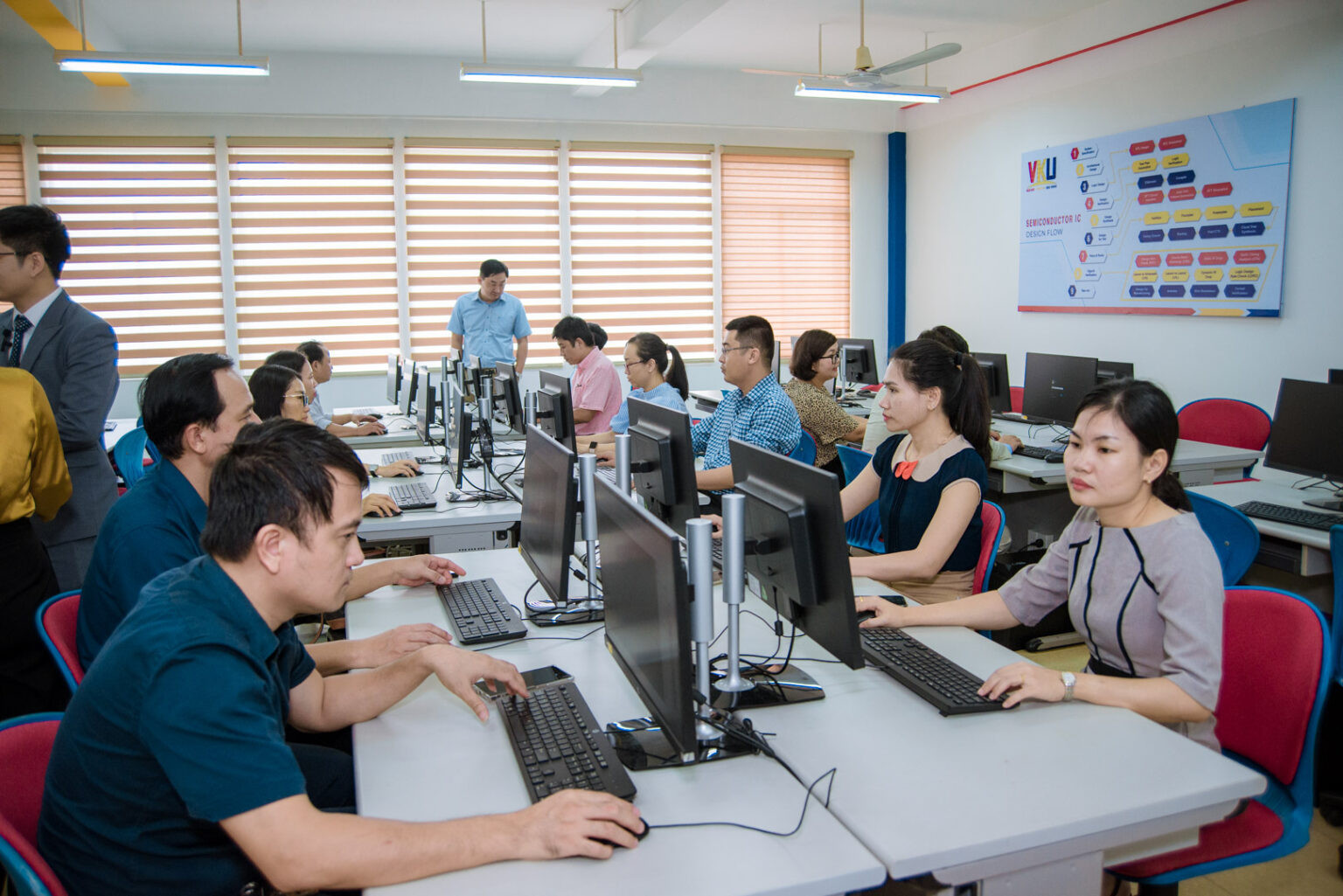
Quang stressed that if Da Nang doesn’t apply groundbreaking policies and specific mechanisms, it won’t be able to reach the goals set by the Politburo and the central government.
According to Quang, of the five new policies Da Nang has planned, two are the most important. First, developing an FTZ. Second, developing science and technology and stepping up innovation.
The city wants to attract resources for the development of a semiconductor industry and AI, as well as attract the world’s technology giants, including Intel, Qualcomm, Ampere and ARM.
Quang said major investors have expressed their intention to invest in Da Nang and are awaiting policies to begin their investment plans.
Regarding the FTZ plan, Quang said many countries have succeeded with the model, but there is no precedent for such an economic zone in Vietnam.
“We can anticipate risks when applying the model. If we succeed, the model will be applied widely throughout the country. If the plan fails, Da Nang will incur losses,” Quang said.
The official emphasized that unlike other localities, Da Nang will carry out its development plan in the new period itself rather than rely on the central government’s support. What the city needs is reasonable policies which allow it to use resources for investment and development.
National Assembly deputies have shown support for the idea of developing an FTZ. Luong Van Hung, a National Assembly deputy from Quang Ngai, commented that the model fits the current conditions of Da Nang.
“Integrating three zones of production, seaport logistics and services will create a momentum for Da Nang to develop,” Hung said.
However, he warned that Da Nang won’t succeed if it doesn’t have more open, groundbreaking policies with incentives in taxes, investment, land rent and administrative procedure compliance.
The National Assembly’s Economics Committee chair Vu Hong Thanh also applauded the FTZ plan, citing the story of China, which now has 22 FTZs; the first FTZ, in Shanghai, has expanded.
“We should support Da Nang’s intention of establish an FTZ,” Thanh said.
Golden visa
National Assembly deputies all agree that to develop science and technology as planned, DaNang needs reasonable policies to attract talents.
Ta Thi Yen, a National Assembly deputy from Dien Bien, said Da Nang can consider the ‘golden visa’ which has been applied in many countries.
Thailand, for example, in early May 2024 approved a special kind of visa for specialists working in the country’s eastern economic corridor.
The special visa, valid for 10 years, allows visa holders to enter and exit the country many times. Also, the experts residing and working at the corridor can enjoy a special personal income tax scheme.
Yen believes that Da Nang should try the golden visa and offer preferential personal income tax for individuals with high education levels and high positions at their organizations, who live and work in the Da Nang FTZ, hi-tech zones and concentrated IT zones, innovation startup support centers, and innovation spaces funded by the city’s budget.
National Assembly Secretary General Bui Van Cuong said some National Assembly deputies also suggested the golden visa policy for Da Nang, offering the right to reside and work for five years to experts and their families, and increase the residence duration and offer entry visa exemption. This will attract specialists, strategic investors and startups in emerging business fields.
Regarding the strategy to develop semiconductors, analysts said Da Nang needs to attract leading experts to research and lecture at universities and start businesses.
The government is designing a plan on producing 50,000-100,000 workers for the semiconductor industry. Da Nang is also focusing on designing, testing and packaging.
Meanwhile, deputy chair of Quang Tri province Ha Sy Dong commented that Da Nang’s draft resolution on city development still doesn’t mention solutions and policies, but only gives general comments.
“The draft resolution just says the city’s people’s council will determine the income levels for experts, scientists and talents,” Dong noted, adding that wage and treatment policies for talents have not been shown in detail.
Thu Hang